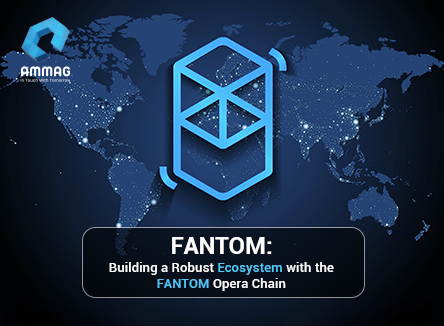Blockchain in Real Estate Transforming the Industry with Transparency

Blockchain technology is revolutionizing the way we conduct transactions and maintain records across various industries. In the real estate sector, this transformative technology is no exception. Its core principles, including decentralization, transparency, and security, are reshaping the industry, offering a promising solution to age-old challenges.
Top Blockchain companies are at the forefront of this revolution, offering comprehensive blockchain development services in Real estate. These providers understand that real estate transactions involve a web of complex processes and numerous stakeholders, making transparency and efficiency paramount.
Blockchain technologies play a pivotal role in creating customized solutions for the real estate industry. These services are instrumental in developing blockchain applications that streamline property transactions, reduce fraud, and enhance security.
Blockchain's potential to disrupt the real estate industry is not limited to its ability to eliminate intermediaries and streamline transactions. The Blockchain technology are designed to enhance trust and transparency in a sector where these qualities are often in high demand. The distributed ledger technology that underpins blockchain ensures that once a transaction is recorded, it cannot be altered or tampered with, creating a permanent and transparent record of property ownership and history.

Current State of Real Estate Transactions
The real estate industry, though a cornerstone of modern economies, often finds itself entangled in a web of bureaucracy, paperwork, and intermediaries. Traditional property transactions are notorious for being time-consuming, cumbersome, and at times, fraught with risks. This state of affairs has persisted for decades, but the advent of blockchain technology promises to disrupt these long-standing challenges.
Blockchain experts recognize that the current real estate transaction process is in dire need of transformation. These forward-thinking companies understand the intricacies of property deals and the hurdles that stakeholders face, from buyers and sellers to real estate agents and legal authorities. They aim to streamline this process, making it more transparent and efficient.
Blockchain development play a critical role in reshaping how real estate transactions occur. By utilizing their expertise, blockchain development services can design and implement blockchain applications tailored to the unique needs of the real estate sector. These applications can automate and secure property agreements, reducing the dependence on intermediaries.
In the traditional real estate landscape, property transactions are rife with complexities. There's a reliance on manual record-keeping, legal documents, and third-party validation. These processes often lead to delays and increased costs.
This is where blockchain technology steps in, offering a solution that aligns with the digital age. Its distributed ledger system ensures that property records are securely stored and can't be tampered with. Every transaction, change of ownership, or other relevant data is recorded immutably, creating a transparent and traceable history for each property.
The benefits are clear. The transparency of blockchain not only mitigates the risk of fraud but also expedites the transaction process. Parties involved in the real estate deal can trust that the information they see is accurate and up-to-date. This streamlining of the process has the potential to revolutionize how real estate transactions are conducted.

Benefits of Blockchain in Real Estate
The application of blockchain technology in the real estate industry brings with it a multitude of advantages. These benefits extend to various stakeholders in the industry, from buyers and sellers to real estate agents and investors. As we explore the transformative potential of blockchain in real estate, we'll uncover the substantial advantages it offers.
The blockchain development firms are instrumental in bringing these benefits to fruition. Their expertise and tailored solutions are central to leveraging blockchain's potential in the real estate sector.
Increased Transparency
One of the most significant advantages of blockchain in real estate is the transparency it offers. All relevant information about a property, including its history, ownership, and transactions, is securely stored in an immutable ledger. This transparency reduces the risk of fraudulent activities and provides stakeholders with confidence in the accuracy of the data they access.
Reduced Fraud
Blockchain's security features enabled by 360 Blockchain solution providers ensure that property records are tamper-proof. This drastically reduces the risk of fraud in real estate transactions. For buyers and sellers, the assurance that property documents are genuine and unaltered can be a game-changer.
Faster Transactions
Real estate transactions often suffer from delays due to the need for manual document verification and third-party validation. Blockchain's ability to automate and digitize these processes can significantly expedite transactions, reducing the time it takes to complete property deals.
Lower Costs
The efficiency and transparency offered by blockchain can lead to cost reductions. With fewer intermediaries involved and a streamlined process, expenses associated with real estate transactions can be minimized.
Accessibility Blockchain development services play a pivotal role in tailoring solutions to the real estate sector. By creating user-friendly interfaces and applications, they make blockchain technology accessible to a wider range of users, ensuring that both tech-savvy individuals and those new to blockchain can benefit from its features.
These benefits are not merely theoretical; they represent real, tangible improvements in the real estate industry. The transparency and efficiency of blockchain can fundamentally change the way property transactions are conducted, making the process more accessible, secure, and cost-effective for all involved.
Blockchain Technology Solutions for Real Estate
The real estate industry has long been searching for innovative solutions to its age-old challenges. Blockchain technology is emerging as a transformative force, and companies are at the forefront of pioneering change. Their innovative approach, exemplified a blockchain-based real estate platform, providing decentralized and secure verifications, certifications, and credential real estate services.
In addition to CESCO, another noteworthy case study in the realm of blockchain technology solutions for real estate is DGOLDMINE , DGOLDMINE is a blockchain-based digital real estate platform enabling users to securely buy, sell, and trade their properties and real estate assets.

Latest Trends and Technologies
The real estate industry is evolving rapidly, and blockchain technology is a significant driver of this transformation. As we explore the latest trends and technologies, we'll uncover how blockchain is reshaping the real estate landscape and making transactions more efficient and secure.
The commitment of blockchain or ai development company to integrating the latest technologies into real estate processes is a testament to their dedication to improving the industry. Here are some of the most noteworthy trends and technologies that are driving the transformation of the real estate industry:
NFTs for Property Ownership
NFTs, which are unique digital assets, have made their way into the real estate sector. Property ownership can be represented through NFTs, allowing for more accessible and secure proof of ownership.
Smart Contracts
Smart contracts, powered by blockchain, automate real estate agreements. They execute predefined actions when specific conditions are met, reducing the need for intermediaries and ensuring that transactions are secure and transparent.
Blockchain Platforms
Leading blockchain platforms like Ethereum and Hyperledger are being harnessed to develop real estate solutions. These platforms provide the necessary infrastructure to create secure and efficient systems for property transactions.
Decentralized Identity Verification
Blockchain offers a decentralized and secure way to verify identities in real estate transactions. This reduces the risk of identity fraud and ensures that parties involved are who they claim to be.
Real-time Data Sharing
Blockchain enables real-time data sharing among all parties involved in a real estate deal. This ensures that information is up-to-date and reduces the chances of miscommunication or delays.
The real estate industry is embracing these trends and technologies, recognizing the potential to streamline processes, enhance transparency, and reduce costs. These advancements are not merely theoretical; they represent practical applications that are reshaping the way real estate transactions occur.

Blockchain Technology: Tailoring Solutions for Real Estate
In the realm of real estate, the application of blockchain technology relies heavily on the expertise of Blockchain development. These professionals are pivotal in the design and implementation of blockchain applications tailored to the unique needs of the real estate sector.
Custom Solutions
Blockchain development understands that real estate transactions come in various forms, each with its own intricacies. They create customized blockchain applications that address the specific challenges of property transactions, ensuring that the technology seamlessly integrates into the industry.
Smart Contracts
A significant innovation brought by Blockchain solutions is the use of smart contracts. These self-executing contracts automate agreements between buyers and sellers, and when conditions are met, actions are taken. This automation significantly reduces the need for intermediaries and ensures that transactions are secure and transparent.
User-Friendly Interfaces
Recognizing that not all users are blockchain experts, Blockchain development solutions are focused on creating user-friendly interfaces. These interfaces ensure that both tech-savvy individuals and those new to blockchain can access and benefit from the technology.
Efficiency
Real estate transactions often involve a complex web of paperwork and verification. Blockchain development simplifies this process by digitizing and automating various aspects of transactions. This efficiency translates into quicker deals and cost savings.
Security
In an industry where the accuracy of property records and ownership is paramount, Blockchain development prioritizes security. The integration of encryption and immutability into blockchain applications ensures that property transactions are tamper-proof and secure.
The impact of Blockchain services and solutions on the real estate industry is profound. Their ability to create applications that streamline the transaction process and enhance transparency is transforming the way property deals occur.
Challenges and Future Outlook
While the potential of blockchain in real estate is immense, it's essential to acknowledge the challenges and obstacles that may arise during its implementation. Understanding these challenges can help the industry prepare for a future where blockchain plays a more significant role in real estate transactions.
Blockchain Integration Challenges
Integrating blockchain technology into existing real estate systems and processes can be challenging. Ensuring compatibility and a smooth transition without disrupting ongoing operations is a significant hurdle.
Legal and Regulatory Frameworks
The legal and regulatory environment for real estate transactions varies from one region to another. Adapting blockchain solutions to comply with these frameworks while maintaining transparency and security can be complex.
Data Privacy Concerns
Real estate transactions involve sensitive and private data. Ensuring data privacy and protection while utilizing blockchain's transparent features is a delicate balance to maintain.
Resistance to Change
The real estate industry, like any other, can be resistant to change. Overcoming resistance from stakeholders who are accustomed to traditional methods can be a hurdle in the widespread adoption of blockchain.
Scalability
As blockchain networks grow, scalability becomes a concern. Ensuring that the technology can handle an increasing number of transactions without compromising speed and efficiency is a continuous challenge.
Interoperability
Blockchain networks must be interoperable to facilitate seamless transactions. Ensuring different blockchain networks can work together is a challenge that needs to be addressed for widespread adoption.

Conclusion
In conclusion, blockchain technology is reshaping the real estate industry with its transparency, security, and efficiency. From the elimination of intermediaries to the automation of agreements through smart contracts, blockchain has the potential to revolutionize the way real estate transactions occur.
The case of Ammag technologies showcases how blockchain can bring transparency and security to the forefront of real estate transactions. These pioneers are leading the way and demonstrating the potential of blockchain in the industry.
As the real estate sector continues to embrace blockchain, the latest trends and technologies, including NFTs for property ownership and smart contracts, will further enhance the industry's efficiency and transparency.
While there are challenges in integrating blockchain into real estate, the future outlook is positive. The benefits of blockchain are too significant to be ignored, and the industry is poised for a brighter, more transparent future.
We encourage all stakeholders in the real estate industry to explore and adopt blockchain technology for a more efficient and secure way of conducting property transactions. The transformation has begun, and the future of real estate is guided by the transparency and innovation offered by blockchain technology. If you have a real estate project and looking for blockchain development company, contact us now to get free project estimation.













-and-How-Does-It-Work/Main-Image_02.jpg)


























